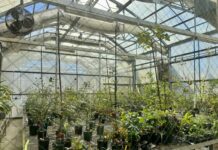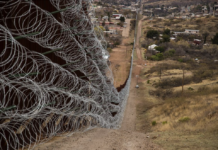
Leah Schwarting
Co-Editor
Last year, Florida Southern College, working alongside the Society for the Prevention of Cruelty to Animals of Florida, announced its plans to install several “Cat Cafés” around Florida Southern College.
Two Cat Cafés were completed when, over the summer, plans to construct the Cat Cafés were halted.
“We listened to the first presentation and we came out and looked at the places that they had given us some information that it worked,” Terry Dennis, FSC vice-president for finance and administration, said. “It’s received very strong, good, complimentary remarks. But then there’s a whole flip side to that, that people are objecting to,”
The Cafés would be areas where FSC’s feral cat community could seek shelter and food. They were also going to be used as a way to turn FSC’s feral cat colony into a managed colony.
“A managed colony is a colony where the kitties have been TNVRed, which is trapped, neutered, vaccinated, and returned. They’re fed on a regular basis, and they are also monitored,” Jessica Lawson, community relations manager for SPCA Florida, said.
SPCA Florida generally does health checks on any cats that come in, and also does TNVR.
“[Cats] are premedicated to relax them, they are put under general anesthesia. It takes a grand total of maybe 20 minutes of actual surgical time, maybe closer to 30, 45 minutes for the whole cat to make it through the whole process,” Dr. Richard D’Amico, a doctor of veterinary medicine at SPCA Florida, said.
During April the SPCA came to FSC and began the TNVR process on the college’s feral cat colony.
“All of the cats that we TNRVed have also been vaccinated. So really, that’s the best approach that you can possibly take,” Lawson said. “To just not address the problem, you’re leaving that animal to roam, versus if you do address the problem you’re able to trap them and actually get them vaccinated while you also prevent overpopulation by spaying and neutering them.”
SPCA Florida TNVRed around 18 cats on campus before FSC was contacted concerning the project.
“Some of the veterinarians from the state got hold of us and alerted us to an issue that’s going on,” Dennis, said. “And, apparently, there’s a very big difference of opinion between vets, as an organization, and the groups like SPCA. The vets are given documentation that says that the cat colony actually becomes more of a breeding ground for different diseases that might be able to be transmitted to humans.”
The school also found out information that, in addition to being a possible place for disease to start, the food left at the Cafés could also attract wildlife like raccoons that have not been vaccinated.
In light of the possible health risks FSC has currently put the Cat Café project on hold. Dennis said that “safety comes first.”
“We’ll just wait and see where it goes,’” Dennis said. “And if the state passes legislation next year that says this is a state supported direction to go in…then it becomes a completely different picture. But right now there’s such a mix of opinions.”
Alpha Chi Omega spent last year working with the project. The sorority, along with Logan Vandiver, hosted the “Meowsic Festival” on April 5 as a way to raise money to maintain the Cafés. According to Larissa Town, Alpha Chi Omega’s vice president of philanthropy, the collected funds were donated to the SPCA when the project was put on hold.
Dennis said that the school was open to having the SPCA return to campus to continue the TNVR program, but the Cat Café project is on hold.
Lawson said that the SPCA respects the school’s decision. Lawson also said that, although the project is on hold, the SPCA is still interested in working with the college.
“We are eager to continue the partnership with Florida Southern though, so we’re just kind of waiting for the go ahead from the school,” Lawson said.
Photo courtesy of FSC
Editor’s note: In the print version of this article, Logan Vandiver’s name was not mentioned.







